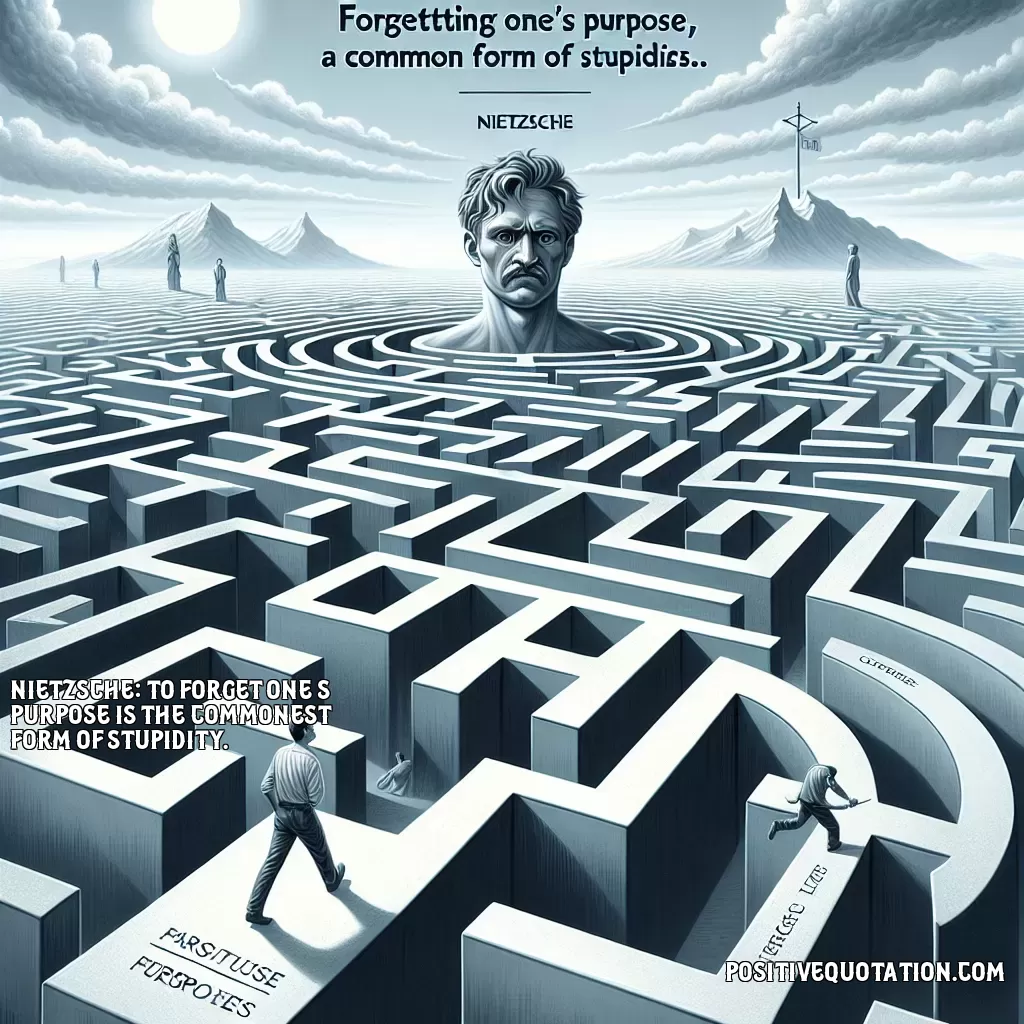
Nietzsche: To forget one’s purpose is the commonest form of stupidity.
Author: Friedrich Nietzsche
👁️ 11 views

Nietzsche: To forget one’s purpose is the commonest form of stupidity.
👁️ 11 views
Friedrich Nietzsche, a prominent 19th-century philosopher, is known for his profound insights into human nature and society. The quote "To forget one’s purpose is the commonest form of stupidity" succinctly captures one of the central themes in his philosophy: the importance of purpose and intentionality in human life. At its core, Nietzsche's quote emphasizes the fundamental role that purpose plays in giving life meaning and direction. Forgetting one's purpose, according to him, equates to a form of self-sabotage that leads to a lack of direction and fulfillment. This forgetfulness is not due to a lack of intelligence but rather a neglect or abandonment of the guiding principles or goals that provide coherence to one's existence. In Nietzschean philosophy, the concept of "purpose" is often linked to his idea of the "will to power," which is the driving force behind human action and creativity. When one loses sight of this inner drive, they become susceptible to external influences and societal norms that lead to conformity, stagnation, and unfulfillment. Nietzsche warns against this passivity because it strips individuals of their individuality and potential for self-realization. Furthermore, Nietzsche's critique extends to the broader human condition, suggesting that without a clear purpose, societies and cultures may also fall into cycles of mediocrity and decline. When people forget their collective or individual purposes, they are more likely to follow dogmas and ideologies without question, which stifles progress and innovation. In essence, Nietzsche's statement is a call to self-awareness and intentionality. It urges individuals to constantly reflect on their goals and aspirations, to ensure that they remain aligned with their true selves. By doing so, one can avoid the "commonest form of stupidity" and live a life that is authentic and genuinely fulfilling.
Quote By: Friedrich Nietzsche
Friedrich Nietzsche (1844-1900) was a German philosopher, cultural critic, and poet known for his provocative ideas on morality, religion, and the nature of existence. He famously declared the "death of God" and introduced concepts such as the "Übermensch" and "eternal recurrence," challenging traditional values and pushing for a re-evaluation of societal beliefs. His influential works, including "Thus Spoke Zarathustra" and "Beyond Good and Evil," have left a lasting impact on philosophy, literature, and psychology.
Bio added on: 2025-02-15 02:56:26